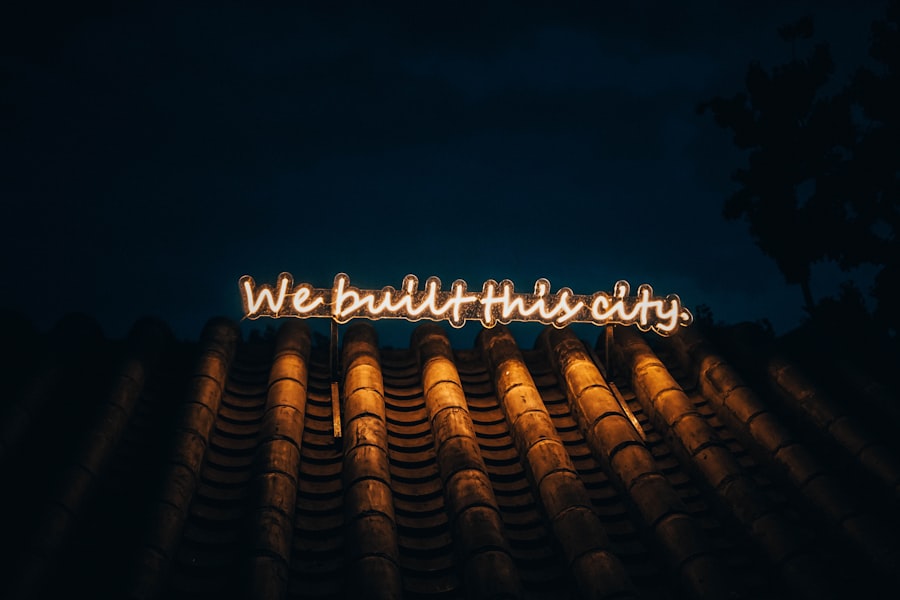Cults can have a profound and often devastating impact on an individual’s sense of self. When you become involved in a cult, the group often demands complete loyalty and conformity, which can lead to a significant alteration of your identity. The teachings and beliefs of the cult may replace your personal values, making it difficult to recognize who you are outside of the group.
This transformation is not merely superficial; it can penetrate deep into your psyche, reshaping your thoughts, emotions, and behaviors. You may find yourself adopting new beliefs that contradict your previous understanding of the world, leading to confusion and internal conflict. As you immerse yourself in the cult’s ideology, you may begin to lose touch with your authentic self.
The pressure to conform can be overwhelming, and the fear of ostracism or punishment for dissenting thoughts can stifle your individuality. Over time, this can result in a fragmented identity, where you struggle to reconcile your past self with the person you have become within the cult. Understanding this impact is crucial for anyone who has left a cult or is contemplating leaving, as it lays the groundwork for the journey of rediscovery and healing that lies ahead.
Key Takeaways
- Cults can have a significant impact on an individual’s identity, often leading to a loss of personal values and beliefs.
- Signs of identity loss may include a lack of autonomy, dependence on the cult for decision-making, and a diminished sense of self-worth.
- Seeking support and guidance from trusted friends, family, or professionals is crucial in breaking free from the influence of a cult.
- Rediscovering personal values and beliefs is essential for rebuilding a strong sense of self and regaining autonomy.
- Exploring new hobbies and interests can help individuals establish a new sense of identity and purpose outside of the cult.
Recognizing the Signs of Identity Loss
Recognizing the signs of identity loss is an essential step in reclaiming your sense of self after leaving a cult. You may notice feelings of confusion or disorientation regarding your beliefs and values. This disconnection can manifest as a lack of clarity about what you truly want in life or what makes you happy.
You might find yourself questioning your decisions or feeling uncertain about your future. These feelings are often accompanied by a sense of emptiness or a void where your identity used to reside. Another sign of identity loss is the difficulty in forming or maintaining relationships outside of the cult.
You may feel isolated or alienated from friends and family who do not share your experiences. This isolation can exacerbate feelings of loneliness and despair, making it even harder to reconnect with your true self. Additionally, you might experience anxiety or fear when faced with situations that challenge the beliefs instilled in you by the cult.
Recognizing these signs is vital for initiating the healing process and taking steps toward rebuilding your identity.
Seeking Support and Guidance
Seeking support and guidance is a crucial step in navigating the complex emotions and challenges that arise after leaving a cult. You may feel overwhelmed by feelings of shame, guilt, or confusion, and having a support system can provide you with the reassurance and understanding you need during this tumultuous time. Connecting with others who have had similar experiences can be particularly beneficial, as they can offer insights and validation that help you feel less alone in your journey.
Support can come in various forms, including friends, family members, or support groups specifically designed for individuals recovering from cult experiences. These groups often provide a safe space for sharing stories and emotions without judgment. Additionally, seeking guidance from professionals who specialize in cult recovery can be invaluable.
Therapists or counselors trained in this area can help you process your experiences, develop coping strategies, and work toward rebuilding your identity in a healthy way.
Rediscovering Personal Values and Beliefs
| Personal Values and Beliefs | Metrics |
|---|---|
| Number of individuals surveyed | 500 |
| Percentage of individuals who feel disconnected from their personal values | 35% |
| Percentage of individuals who have made changes to align with their personal values | 45% |
| Number of individuals who seek guidance in rediscovering personal values | 250 |
Rediscovering your personal values and beliefs is an empowering step in reclaiming your identity after leaving a cult. This process involves reflecting on what truly matters to you, independent of the influences that shaped your thoughts while you were part of the group. You may want to take time to journal or engage in deep self-reflection to explore what resonates with you on a fundamental level.
Consider what principles guide your life and what brings you joy and fulfillment. As you embark on this journey of rediscovery, it’s important to allow yourself the freedom to explore new ideas and perspectives. You might find that some beliefs you held while in the cult no longer serve you, while others may still hold value but need to be redefined in a way that aligns with your authentic self.
Embracing this exploration can lead to a more profound understanding of who you are and what you stand for, ultimately helping you build a more cohesive identity.
Exploring New Hobbies and Interests
Exploring new hobbies and interests can be a transformative way to reconnect with yourself after leaving a cult. Engaging in activities that excite you can reignite passions that may have been suppressed during your time in the group. Whether it’s painting, hiking, writing, or learning a musical instrument, these pursuits can provide an outlet for self-expression and creativity that fosters personal growth.
As you delve into new interests, you may also discover communities that share your passions, allowing you to form connections based on mutual enjoyment rather than ideology. This can be particularly healing as it helps you build relationships outside of the cult environment. Trying new things not only enriches your life but also serves as a reminder that there is a world beyond the confines of the beliefs that once defined you.
Establishing Healthy Boundaries

Establishing healthy boundaries is essential for protecting your newfound sense of self after leaving a cult. You may have experienced blurred lines between personal autonomy and group demands while involved in the cult, making it crucial to define what is acceptable for you moving forward. Setting boundaries allows you to prioritize your well-being and assert your needs without feeling guilty or selfish.
To establish these boundaries effectively, start by identifying areas in your life where you feel uncomfortable or overwhelmed. This could involve limiting contact with individuals who trigger negative memories or emotions related to your past experiences. It may also mean learning to say no to situations that do not align with your values or that compromise your mental health.
By practicing assertiveness and communicating your boundaries clearly, you empower yourself to create a healthier environment conducive to personal growth.
Reconnecting with Family and Friends
Reconnecting with family and friends is an important aspect of rebuilding your identity after leaving a cult. The isolation often experienced within such groups can sever ties with loved ones who care about you deeply. Taking steps to mend these relationships can provide emotional support and help restore a sense of belonging in your life.
Be open about your experiences and share how you’ve been feeling since leaving the group. While some relationships may take time to heal, others may welcome you back with open arms, eager to reconnect and support you on your journey toward rediscovery.
Embracing Self-Reflection and Self-Acceptance
Embracing self-reflection and self-acceptance is vital for healing after leaving a cult. This process involves looking inward to understand your thoughts, feelings, and behaviors without judgment. It’s essential to recognize that healing is not linear; there will be ups and downs along the way as you navigate this complex journey.
Self-acceptance means acknowledging all parts of yourself—both the strengths and weaknesses—without shame. It’s about recognizing that your past experiences do not define you but rather contribute to the rich tapestry of who you are becoming. By practicing self-compassion and allowing yourself grace during this process, you create space for growth and transformation.
Seeking Professional Therapy and Counseling
Seeking professional therapy and counseling can be one of the most beneficial steps in reclaiming your identity after leaving a cult. A trained therapist can provide a safe space for you to explore your feelings, process traumatic experiences, and develop coping strategies tailored to your unique situation. They can help guide you through the complexities of identity loss while offering tools for rebuilding a healthy sense of self.
Therapy can also assist in addressing any lingering fears or anxieties related to your past experiences within the cult. By working through these emotions with a professional, you can gain clarity and insight into how they impact your current life. This support is invaluable as it empowers you to move forward with confidence and resilience.
Finding Meaning and Purpose in Life
Finding meaning and purpose in life after leaving a cult is an essential part of rebuilding your identity. The search for purpose often involves exploring what brings fulfillment beyond external validation or group approval. This journey may require introspection as you consider what truly matters to you—whether it’s helping others, pursuing creative endeavors, or contributing positively to society.
Engaging in activities that align with your values can help cultivate a sense of purpose that feels authentic to you. Volunteering for causes that resonate with you or pursuing educational opportunities can provide direction as well as opportunities for personal growth. As you discover what gives your life meaning, you’ll find that it becomes easier to navigate challenges and embrace new experiences with enthusiasm.
Building a Strong Support Network
Building a strong support network is crucial for sustaining your journey toward reclaiming your identity after leaving a cult. Surrounding yourself with individuals who understand your experiences and respect your journey fosters an environment where healing can thrive. This network may include friends, family members, support groups, or mental health professionals who are committed to helping you navigate this transformative process.
As you cultivate these relationships, prioritize open communication and mutual support. Share your goals, fears, and triumphs with those around you so they can offer encouragement when needed. A strong support network not only provides emotional backing but also serves as a reminder that you’re not alone on this path toward rediscovery—together, you can celebrate victories big and small as you embrace the journey ahead.
Rebuilding one’s identity after leaving a cult can be a challenging and transformative journey. It involves rediscovering personal values, beliefs, and goals that may have been suppressed or altered during the time within the cult. A helpful resource for understanding this process is an article on Unplugged Psych, which delves into the psychological aspects of cult recovery and offers guidance on reclaiming one’s sense of self. For more insights, you can read the article by visiting this page.
WATCH NOW! 😱😱😱😱😱The Secret Psychology Cults Use on Anyone
FAQs
What is a cult?
A cult is a group or movement that is characterized by its devotion to a particular person, object, or set of beliefs, often with a charismatic leader who exerts significant influence over the members.
How does being in a cult affect one’s identity?
Being in a cult can have a profound impact on an individual’s identity, as cults often exert control over their members’ thoughts, behaviors, and beliefs. This can lead to a loss of personal autonomy and a distorted sense of self.
What are some common challenges faced by individuals trying to rebuild their identity after leaving a cult?
Some common challenges include re-establishing a sense of self, rebuilding social connections outside of the cult, overcoming feelings of guilt or shame, and addressing any psychological or emotional trauma resulting from the cult experience.
What are some strategies for rebuilding identity after leaving a cult?
Strategies for rebuilding identity may include seeking therapy or counseling, reconnecting with supportive friends and family members, exploring new interests and hobbies, and engaging in self-reflection and self-discovery.
Is it possible to fully recover and rebuild one’s identity after leaving a cult?
While the process of rebuilding identity after leaving a cult can be challenging, many individuals are able to fully recover and establish a strong sense of self. It may take time and effort, but with the right support and resources, it is possible to overcome the impact of the cult experience.




